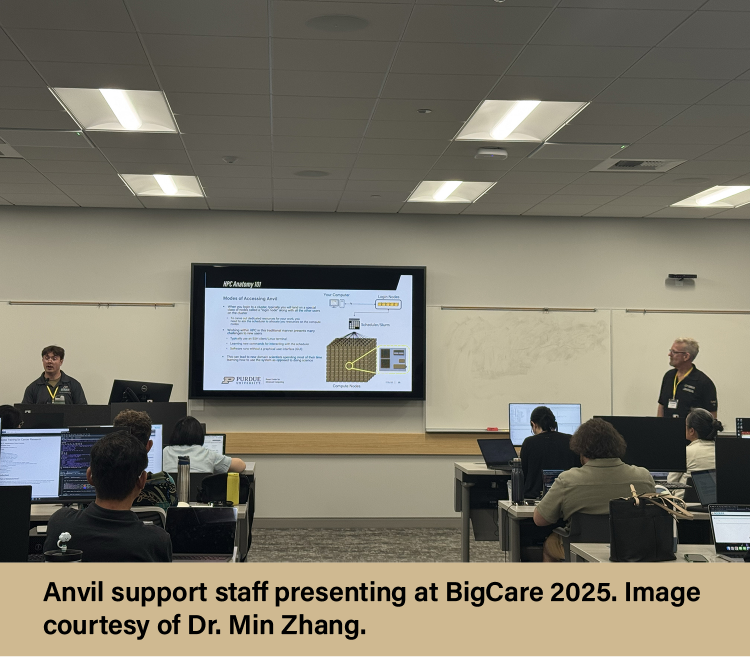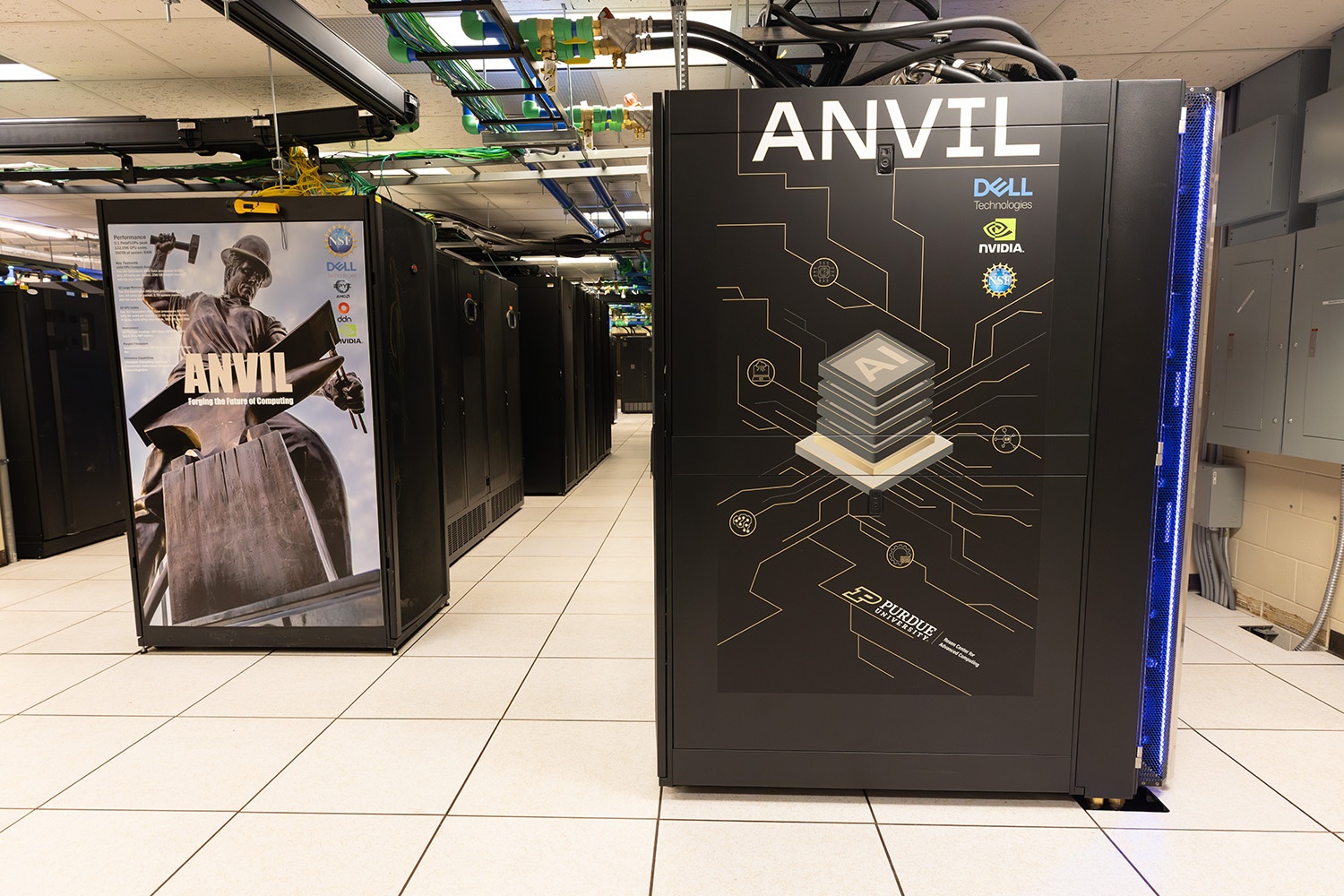Anvil supports BigCARE 2025 Summer Workshop
Purdue University’s Anvil supercomputer recently supported the 2025 BigCARE Summer Workshop, a two-week course aimed at helping cancer researchers develop big data skills. This year’s workshop took place at the University of California, Irvine (UCI). Throughout the course, attendees learned to manage, visualize, analyze, and integrate a variety of omics data in cancer studies. Anvil was integral to the workshop, providing attendees with access to a high-performance computing (HPC) resource designed to have a low barrier of entry for newcomers, which is crucial for those who are inexperienced in big data science.
The Big Data Training for Cancer Research (BigCARE) workshop is a program funded by the National Cancer Institute (NCI). It was founded in 2020 by Min Zhang, MD, PhD, a Professor of Epidemiology and Biostatistics at the University of California, Irvine’s Joe C. Wen School of Population & Public Health, and the Biostatistics Shared Resources Director for the UCI Chao Family Comprehensive Cancer Center, and her collaborators Dr. Sean Davis, MD, PhD, Associate Director of Informatics and Data Science, Professor of Medicine, from University of Colorado Anschutz School of Medicine, and Dr. Dabao Zhang, PhD, Professor of Epidemiology and Biostatistics of Joe C. Wen School of Population & Public Health at the University of California, Irvine. The team recognized a need for specialized HPC and Big Data training for cancer researchers and designed BigCARE to provide for that need. This year’s workshop focused on analyzing and interpreting genomic and genetic data, including microbiome analysis, metabolomics analysis, single-cell data analysis, epigenomic data analysis, mendelian randomization, and transcriptome-wide causal inference for directed gene regulations.
“Anvil has  been extremely helpful during the previous BigCARE workshops,” says Zhang, “especially for our participants with limited computing skills. Anvil provides the essential infrastructure and computing support needed to navigate between command line and R packages for large-scale data. This year, Anvil made the implementation much smoother when we added some AI and machine learning tools for multi-omics data analysis. The Anvil platform, along with Jupyter Notebook, offered an all-in-one solution that helped participants easily and quickly switch from concept to interactive analysis of big data without obstacles.”
been extremely helpful during the previous BigCARE workshops,” says Zhang, “especially for our participants with limited computing skills. Anvil provides the essential infrastructure and computing support needed to navigate between command line and R packages for large-scale data. This year, Anvil made the implementation much smoother when we added some AI and machine learning tools for multi-omics data analysis. The Anvil platform, along with Jupyter Notebook, offered an all-in-one solution that helped participants easily and quickly switch from concept to interactive analysis of big data without obstacles.”
Anvil’s role in the BigCARE workshop was to provide HPC resources through Open OnDemand and Jupyter Notebooks, which limits the need for in-depth knowledge of command-line interfaces or HPC server environments. The course material was developed as Jupyter notebooks, and thanks to Open OnDemand, the researchers had direct web access to the notebooks. All of this equated to a low barrier of entry for the workshop participants.
Aside from providing the hardware and software needed to run the workshop, Anvil added value to BigCARE through the user support provided by the RCAC (Rosen Center for Advanced Computing) team. Before the start of the workshop, the Anvil team modified the Open OnDemand-Jupyter deployment that was customized for last year’s event. This customized deployment automatically handled all course setup and environment creation, eliminating much of the typical HPC work required by participants in such classes. Eric Adams, the Lead Research Operations Administrator for Education, and Ryan DeRue, a Senior Computational Scientist, also attended the event at UCI to present on Anvil and HPC, as well as provide support throughout the week.
“Supporting the BigCARE workshops is a great reminder of why we do what we do,” says Adams. “Providing a platform like Anvil that lowers the barrier to high-performance computing allows cancer researchers to focus on their science, not the technology. Seeing them apply these tools to real-world cancer data in real time is incredibly fulfilling.”
This year’s workshop was a huge success. Dr. Zhang and the attendees were thrilled by what they were able to accomplish during the two-week intensive, as well as how helpful both Anvil and the RCAC support team were. In a post-course survey, 18 of the participants stated that they were likely or very likely to apply for their own Anvil allocation in the future. Dr. Zhang also indicated that she intends to continue using Anvil to support future BigCARE workshops.
More information about the BigCARE 2025 Summer Workshop can be found on UCI’s “Big Data Training for Cancer Research” webpage. Information about the Anvil supercomputer can be found on Purdue’s Anvil Website.
For more information regarding HPC and how it can help you, please visit our “Why HPC?” page. Anvil is funded under NSF award No. 2005632. Researchers may request access to Anvil via the ACCESS allocations process.

Written by: Jonathan Poole, poole43@purdue.edu
